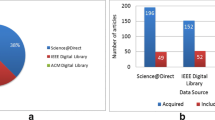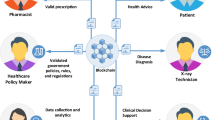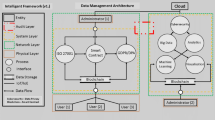Abstract
The paper aims to show how blockchain, particularly Ethereum private blockchain, performs as a record keeper for Malaysian Muslim marriage records as a case study. The study also aims to demonstrate how blockchain technology conserves marriage data and improves data sharing efficiency involves accessing data from the blockchain and multiple users through proof of concept (POC). This POC also intended to seek evidence of immutability, transparency, and authenticity claims by the technology to ensure the record's security is a high priority. The study implements a smart contract on the Ethereum platform in the Government of Malaysia network environment and, the results provide significant evidence of private Ethereum blockchain principles of high availability, efficiency, immutability, transparency, and truthfulness particularly in record keeping. Future research can investigate other blockchain technology for other blockchain initiatives, such as blockchain disruptors. This paper is useful for management researchers and guides management practice for decision-making when determining whether the technology can use as a record-keeper. This paper proposes POC to design and develop record-keeping of Malaysian Muslim marriage records using Ethereum blockchain technology.















Similar content being viewed by others
Notes
(Federal Territories) Act 1984, Act 303 of 1984 in Malaysia; Enakmen Undang-Undang Keluarga (Negeri Selangor) 2003 [Islamic Family Law (State of Selangor) Enactment 2003], Enactment 2 of 2003.
References
Abeyratne S, Monfared R (2016) Blockchain ready manufacturing supply chain using distributed ledger. Int J Res Eng Technol 5:1–10
Alghamdi TA et al (2020) Secure service provisioning scheme for lightweight IoT devices with a fair payment system and an incentive mechanism based on blockchain. IEEE Access 8:1048–1061
Androulaki E et al (2018) Hyperledger fabric: a distributed operating system for permissioned blockchains. In Proc Thirteenth EuroSys Conf Porto Portugal ACM
Aziz AA (2020) Ethereum private network and application development lab notes. Thuleen i.o
Dorri A et al (2017) BlockChain: a distributed solution to automotive security and privacy. IEEE Commun Mag 55(12):119–125
Golosova J, Romanovs A (2018) The advantages and disadvantages of the blockchain technology. In 2018 IEEE 6th Workshop Adv Inf Electron Electr Eng (AIEEE). Lithuania:IEEE
Guegan D (2017) Public blockchain versus private blockchain. Université Panthéon-Sorbonne (Paris 1), Centre d'Economie de la Sorbonne
Ismail WAFW (2015) Forms of document falsification in Malaysia' s Syariah courts. Geografia Malays J Soc Space 11(9):32–39
Islamic Family Law (Federal Territory) Act 1984 IFLA (1984) In Act 303, Government of Malaysia
Kamaruzaman N et al (2018) Blockchain technology for islamic marriage certificate. Int J Eng Technol (UAE). 7(4):193–197
Kandaswamy R, Furlonger D (2018) Pay attention to these 4 types of blockchain business initiatives. Gartner
Leising M (2020) MetaMask's blockchain mobile app opens doors for next-level web. Bloomberg
Makhdoom I et al (2020) PrivySharing: a blockchain-based framework for privacy-preserving and secure data sharing in smart cities. Comput Secur 88:101653
Metamask. https://metamask.io/. Accessed 15 May 2020
Mohamad M (2017) Contesting syariah laws in malaysia: religion, human rights and the state’s response. J Polit Law 10(5):140
Review B (2018) Ethereum white paper made simple. pp 1-29. Report https://www.slideshare.net/antoniomanno3/ethereum-white-papermade-simple
Salleh AZ et al (2016) Codification of islamic family law in Malaysia: the contending legal intricacies. Sci Int (Lahore) 28(2):1753–1762
Sicilia M, Visvizi A (2018) Blockchain and OECD data repositories: opportunities and policy making implications. Library Hi Tech 37. https://www.emerald.com/insight/content/doi/https://doi.org/10.1108/LHT-12-2017-0276/full/html
Shuaib F (2012) The islamic legal system in Malaysia. Pac Rim L Policy J 21:90–91
Sun M, Zhang J (2020) Research on the application of block chain big data platform in the construction of new smart city for low carbon emission and green environment. Comput Commun 149:332–342
Tith D et al (2020) Application of blockchain to maintaining patient records in electronic health record for enhanced privacy, scalability, and availability. Healthcare Inf Res 26(1):3–12. https://doi.org/10.4258/hir.2020.26.1.3
Vazirani A et al (2020) Blockchain vehicles for efficient medical record management. NPJ Digit Med 3(1):1
Viriyasitavat W, Hoonsopon D (2019) Blockchain characteristics and consensus in modern business processes. J Ind Inf Integr 13:32–39. https://doi.org/10.1016/j.jii.2018.07.004
Wang S et al (2019) Blockchain-enabled smart contracts: architecture, applications, and future trends. IEEE Trans Syst Man Cybernet Syst 49(11):2266–2277
Wang Y, Han JH, Beynon-Davies P (2018) Understanding blockchain technology for future supply chains: a systematic literature review and research agenda. Supply Chain Manag Int J 24(1):62–84. https://doi.org/10.1108/SCM-03-2018-0148
Wei J et al (2019) The adoption of blockchain technologies in data sharing: a state of the art survey. In WHICEB 2019 Proc Wuhan China AIS Electron Libr (AISeL)
Zhao X et al (2017) The DAO attack paradoxes in propositional logic. In 2017 4th Int Conf Syst Inf (ICSAI). Hangzhou, China:IEEE
Zhu Y et al (2019) A new instant confirmation mechanism based on interactive incontestable signature in consortium blockchain. Front Comput Sci 13:1182–1197
Acknowledgment
This work is supported by the Malaysian Administrative Modernisation and Management Planning Unit (MAMPU), ICT Consulting Division, Prime Minister Department of Malaysia, and Industrial Research Grant, Integrasi Erat Sdn. Bhd, Vot. No: ZG-2021-001. High appreciation goes to the above sponsors. The authors gratefully acknowledge ICT Consulting Division blockchain team members for their sheer dedication to this POC.
Author information
Authors and Affiliations
Corresponding author
Ethics declarations
Conflict of interest
The authors declare that the research was conducted in the absence of any commercial or financial relationships that could be construed as a potential conflict of interest
Additional information
Publisher's Note
Springer Nature remains neutral with regard to jurisdictional claims in published maps and institutional affiliations.
Appendix
Appendix
Abbreviation | Definition |
|---|---|
POC | Proof Of Concept |
JAKIM | Jabatan Kemajuan Islam |
PAID | District Islamic Religious Office |
JAIN | State Islamic Religious Department |
SPPIM | Sistem Pengurusan Perkahwinan Islam Malaysia |
IFLA | Islamic Family Law |
RDMS | Relational Database Management System |
SEMA | Simulated Existing Marriage Application |
UAT | User Acceptance Test |
Rights and permissions
About this article
Cite this article
Ghazali, R., Ali, F.H.M., Bakar, H.A. et al. Blockchain for record-keeping and data verifying: proof of concept. Multimed Tools Appl 81, 36587–36605 (2022). https://doi.org/10.1007/s11042-021-11336-7
Received:
Revised:
Accepted:
Published:
Issue Date:
DOI: https://doi.org/10.1007/s11042-021-11336-7




